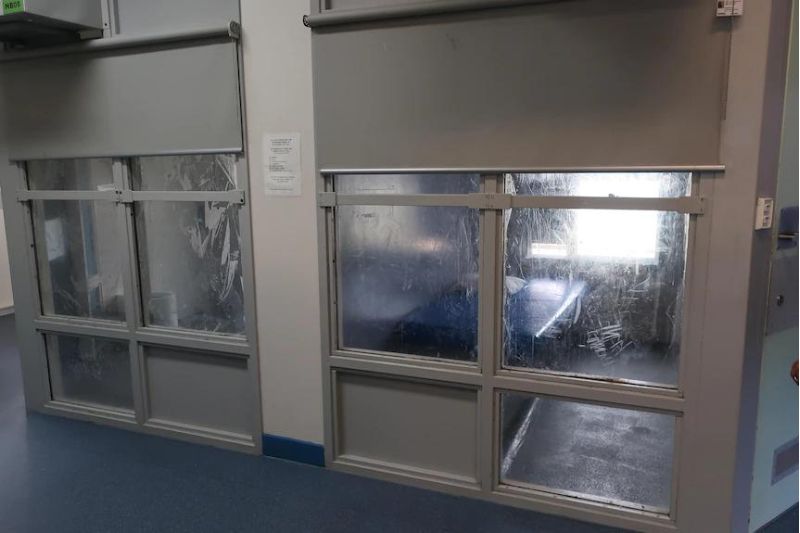Last week a Supreme Court judge in Western Australia ordered that children at Banksia Hill Detention Centre not be placed in solitary confinement and must be given time to exercise. The case was brought on behalf of three children who were locked in their small cells. In many cases the prolonged confinement was judged unlawful. The Judge said that it was also corrosive of children’s development, their mental health and need for exercise and human company. He did not blame the staff at the Centre, but the systematic lack of trained staff.

The incident, however, was only the most recent in a continuous stream of publicity about Australian juvenile justice centres. They deserve further reflection. At a time when the challenge of responding humanely to children’s bad behaviour seems to be just too hard, the harm done to children and society by detention too depressing to face, and the challenge of finding better ways too demanding on our collective pockets and on our empathy, it is important for the sake of the children, for the good of society, and for our own self respect, to address what is done in our name.
The reports about juvenile justice centres have included riots, bullying, abuse, and promises to decommission centres and to build others. Stories about solitary and prolonged confinement in Australian juvenile detention centres have been relentless. In Queensland in February, a thirteen year boy with mental impairment was confined in his cell for 45 days and allowed only two hours each day outside his cell. A thirteen-year-old Indigenous boy on remand was confined for 78 days.
The National Child Commissioners declared the holding of children in solitary confinement to be unjustifiable. In other reports claimed that in Western Australia a severely handicapped boy was confined to his cell for 79 days; in South Australia children were held in cells for up to 23 hours a day; in Tasmania they spent up to 22 hours in solitary confinement.
The purpose for highlighting these stories is not to blame the prison staff. The relevant Departments acknowledged that the detention Centres were understaffed, that many of the Staff lacked the training necessary to understand and relate to often disturbed children, and that the Centres were unable to provide the educational and other programs that they promised. The cruelty of solitary confinement is systematic.
The more concerning question is why such stories have not sparked outrage in the community and led to popular demand to abandon a system that relies on such barbaric practices. Why has there been so little protest against laws that will increase the number of children, and particularly Indigenous children, who will be imprisoned? How could parents who read such reports not ask themselves what effect a regime based on solitary and lengthy periods of confinement in cells would have if imposed on their own children? Most of us would imagine that it would occasion rage, depression, anxiety and regression to infant behaviour. It certainly would not be conducive to healthy connections with their family and with society upon release. The image of the boy with the spit hood in foetal position at Don Dale some years ago asks how we can tolerate any child being treated so.
'The response to children’s lawbreaking by local voices and politicians is often the call to get tougher on crime. A better response is to address the reasons why children break laws.'
If we fear that routine prolonged solitary confinement would most likely have dire effects on children with strong family connections, we should also be able to imagine how they would affect the children consigned to juvenile detention centres. Most children there suffer from multiple disadvantages, including dysfunctional or violent families, delayed personal maturity, domestic violence, mental and physical illness, lack of education and employment, learning difficulties, a history of addiction, and the lack of mature role models or supportive groups. Research into the effects of child detention and its associated practices has also revealed that these consequences of disadvantage are exacerbated by being held in detention. Solitary and lengthy confinement in cells especially militate against personal growth and maturity, mental and physical health, the development of healthy relationships with other people, and the broadening of horizons beyond a future in adult prisons.
The response to children’s lawbreaking by local voices and politicians is often the call to get tougher on crime. The long-term results of policies designed with this end, however, bring great personal and financial cost to society. A better response is to address the reasons why children break laws. This is usually associated with the multiple disadvantages of children in relatively small localities. The best way is to address the disadvantage through supporting the communities with concerted health, educational, employment and child support programs that will prevent law breaking. It is also to work with children who have broken laws through diversionary programs and culturally appropriate restorative justice to help them recognise the impact their actions have on another people, to take responsibility for it and to deal with frustration in relationships and life. This response cannot be described as being soft on crime. It imposes demands on the children themselves and also the community whose future they represent.
Andrew Hamilton is consulting editor of Eureka Street, and writer at Jesuit Social Services.
Main image: Cells in Banksia Hill Detention Centre. (Supplied)